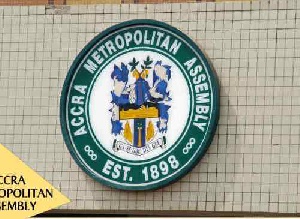The Parliamentary Select Committee on Local Government, has instructed the Accra Metropolitan Assembly (AMA) to stop trucks from continually dumping fecal matter into the sea immediately.
The Committee, lead by it chairperson, Patricia Appiagyei, said it was unacceptable for trucks to use the sea as their final disposal site for liquid waste when a new facility has been built for that purpose.
Madam Appiagyei, who is the Member of Parliament (MP) for Asokwa in the Ashanti Region, said this when her side, paid a day’s working visit to the newly built Lavender Hill Fecal Plant in Accra.
The Committee which was on a fact finding mission, said it would require from the AMA, why it has failed to join forces with Sewage Systems Ghana Limited, operators of the new treatment plant to end the over hundred years practice of discharging waste into the waste.
“I think generally the whole essence of this sewage system is to stop discharge of the waste in the sea. It is unthinkable and it is despicable and it is something we shouldn’t encourage under any circumstance so AMA actually should form partnership with the company that practice is stopped”, she said.
The MP, who is a deputy minister designate for Local Government and Rural Development, expressed surprise that people illegally go behind and discharge into the sea without any basis.
She said, the facility was big enough to contain over five hundred trucks, as they were briefed by managers of the facility.
So I am wondering why, people nicodemously go and discharge at the spot, because from our briefing, we can have as many as five hundred cars, discharging on a daily basis, but unfortunately what we experienced here, we don’t even have adequate cars to discharge.
So nobody, has any excuse to say that the place is full up or the capacity is so low they cannot discharge.
She said, what would need to be done to end the menace completely was for the authorities to enforce the law to the latter, so that the facility could be used to it full capacity.
According to her ,“What we need from AMA is an enforcement so our committee will pay a visit to AMA and find out why their monitoring system have broken down and sometimes we have to discharge waste along the beaches?
She promised if there is any law that will have to be passed to ensure people go according to it, they will spearhead that the AMA can punish these recalcitrant drivers who want to things the same way all the time.
“So we will make sure there’s is a legal framework that can stop this system and ensure we don’t experience it any longer. We will go in there and find out ask them to put all the stop gaps and if we find anyone culpable it is possible that there will be right sanction for them”, she assured. The committee said it was impressed with the facility and assured it will continue to support it and “ensure it sustainability”.
Madam Appiagyei, was also “highly impressed” with the ability of the facility to generate some amount of biogas which operators will be used to run the facility so as to ease the pressure on the national grid. On Friday November 25 2016, the president John Mahama opened the new septic treatment plant Korle Lagoon as one of his government’s flagship projects.
The project which cost $15 million, is a public private partnership (PPP) between Zoomlion Ghana Ltd and the government. It was expected to improve the waste situation in the capital city.
The plant has maximum treatment capacity of 2, 400 cu.m/day and a design capacity of 2,000 cu.m/day.
Managing Director, Haidar M. Said, said the visit by the committee was welcoming and exciting and prayed that the committee, deliberate on it and provide adequate advice to parliament and to the president about this project.
General News of Monday, 10 April 2017
Source: theheraldghana.com













